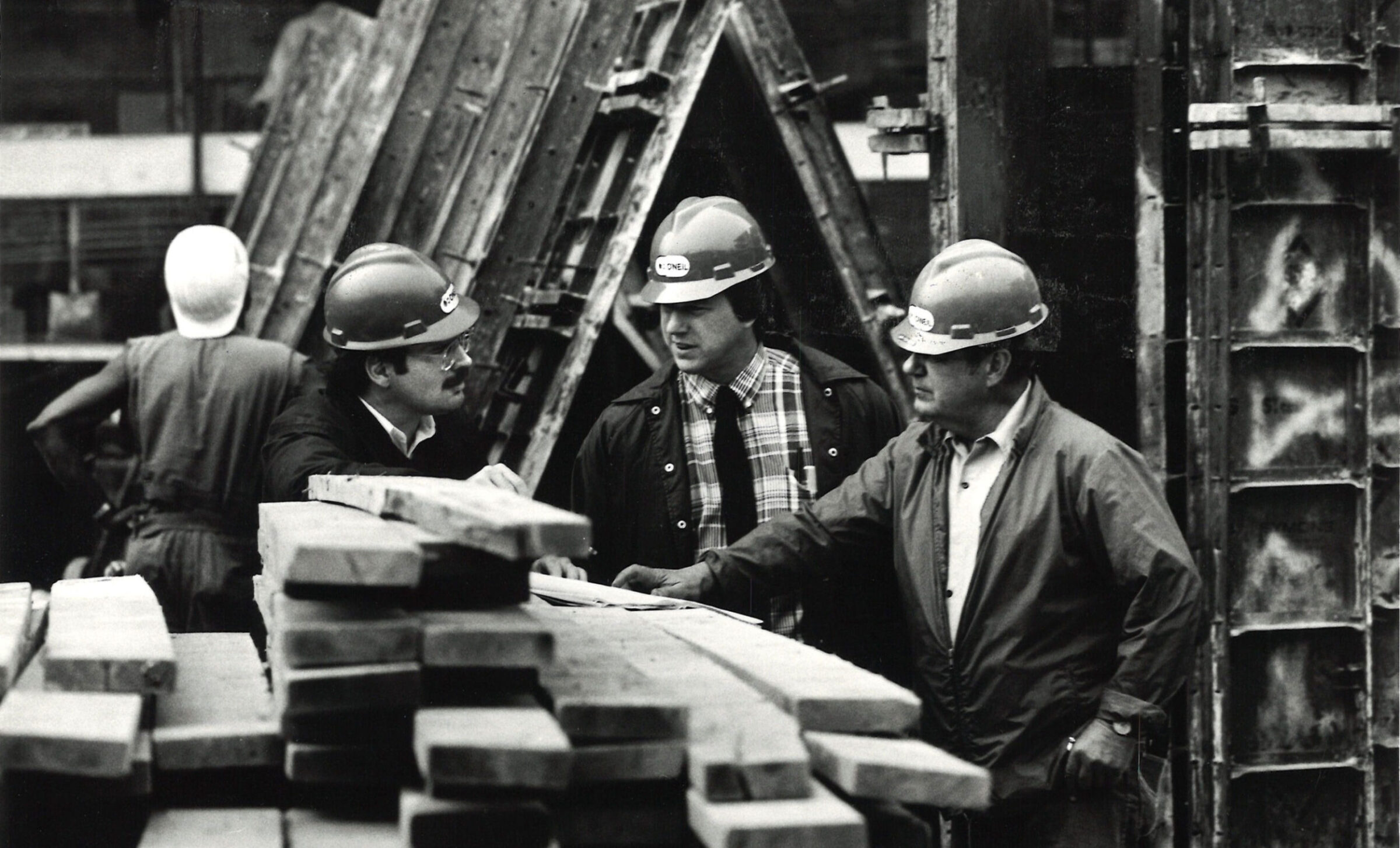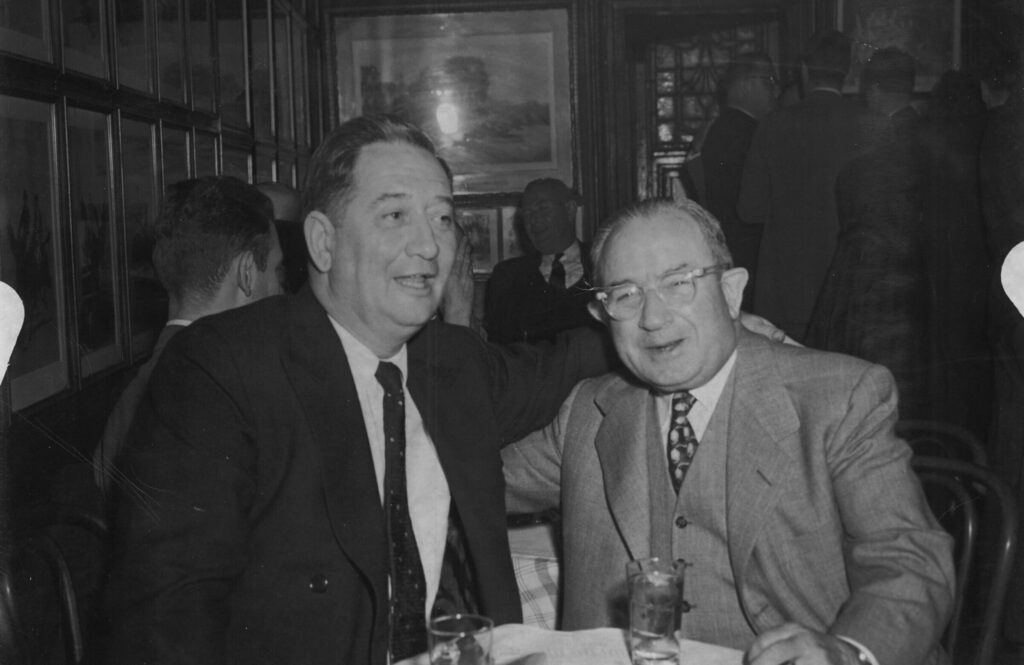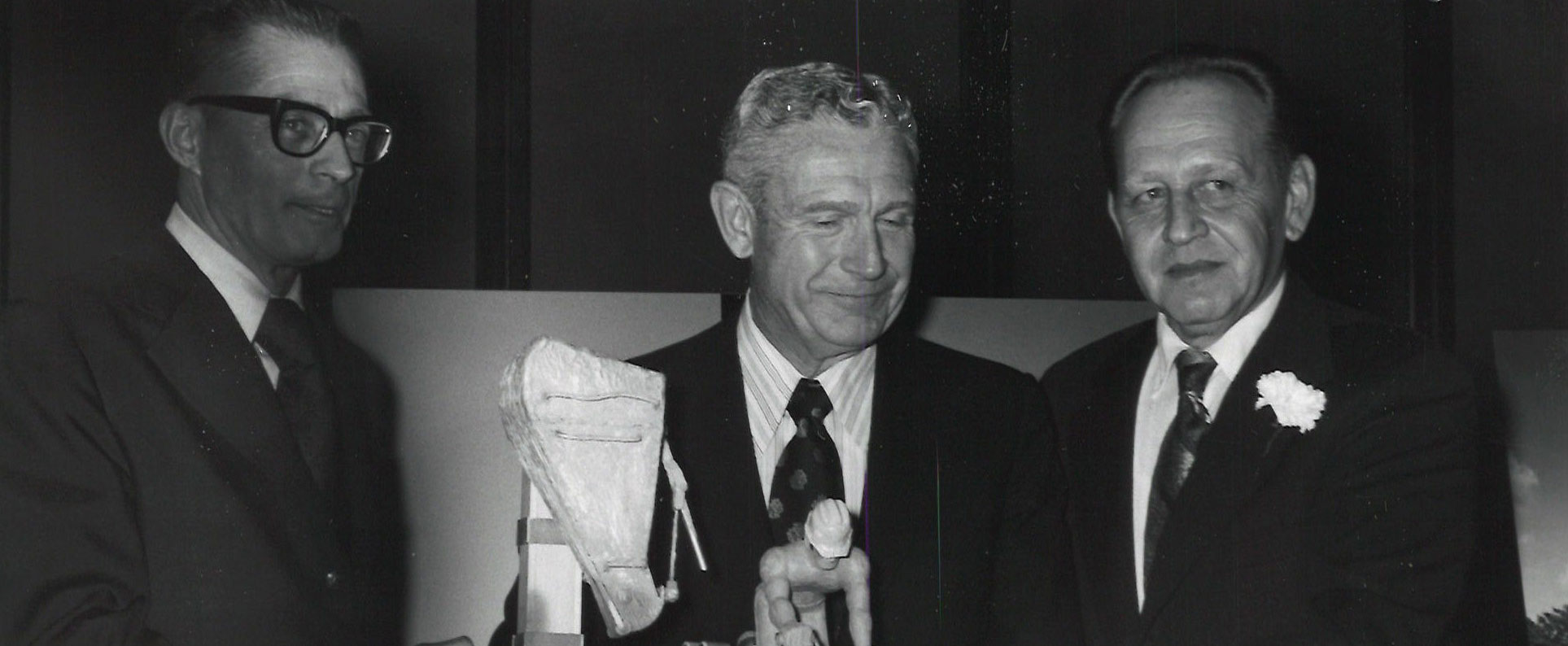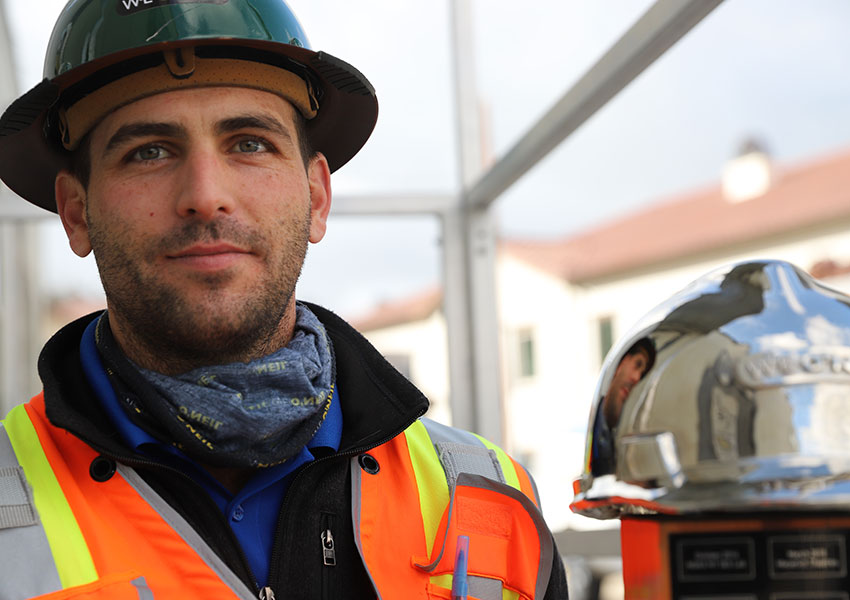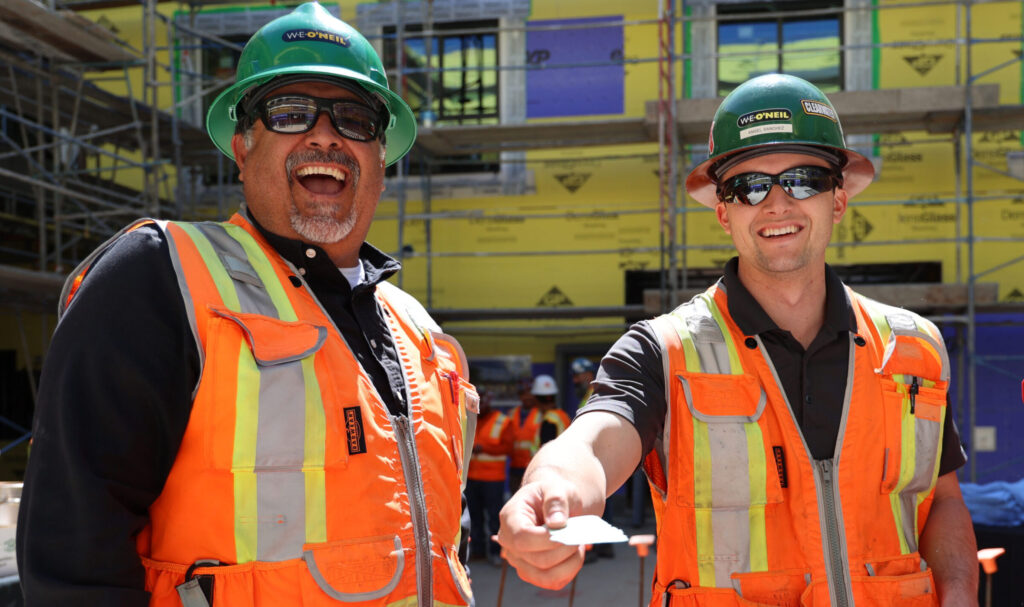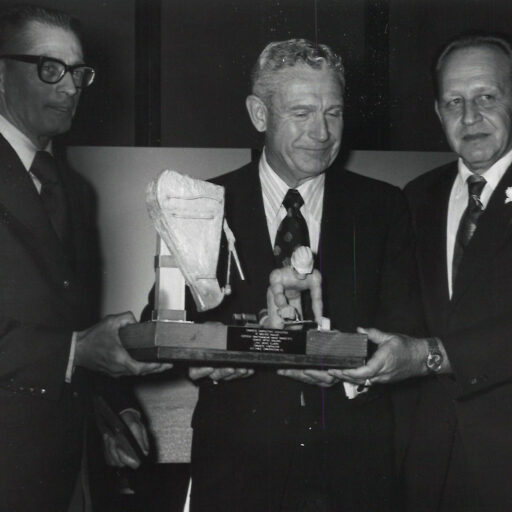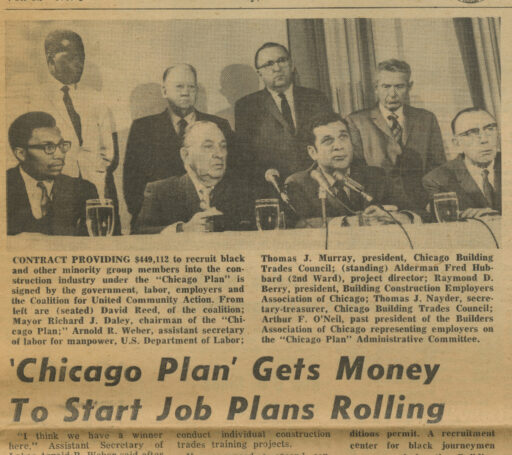Employee Development
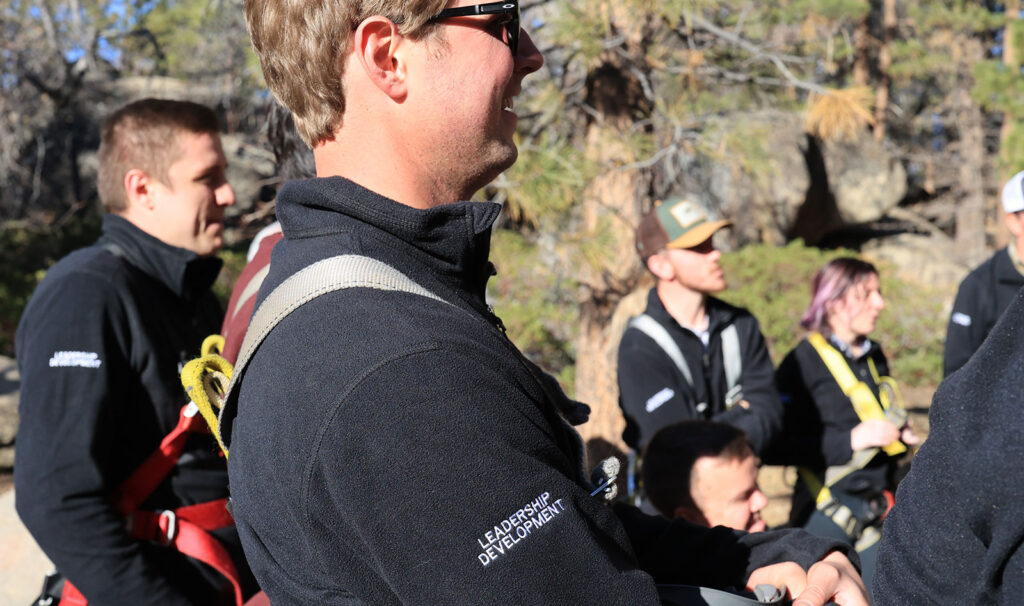
Growth Opportunities for All
Employee development has been a priority since the 1930s, when early Swedish foremen and superintendents facilitated apprenticeship and training programs. In the 1950s, leaders like Joe Rotunno, Jim Heuer, and John Kearns recognized the importance of professional development, implementing plans to recruit and train young construction engineers.
In 2011, Todd Guthrie, Brad Fry, Pat McGowan, and Scott Dombrowski launched the Young Leaders Committee (YLC) to develop future leaders. The program gave them the resources and authority to drive change in the company, bringing their unique enthusiasm and ideas. This later evolved into the Leadership Development Program (LDP), welcoming leaders of all ages.
Shaped by generations of leaders and programs, W.E. O’Neil today fosters a culture of continuous learning, encouraging employees to sharpen skills, explore new ones, and adapt to an ever-changing industry.

